India is willing to offer a “significant” opening of its markets to more US service industry firms if Washington provides more temporary visas for its workers
NEW YORK: India is willing to offer a “significant” opening of its markets to more US service industry firms if Washington provides more temporary visas for its workers as part of the Doha round of world trade talks.
Commerce and industry minister Kamal Nath, in New York to promote his new book and meet with US trade representative Susan Schwab, said in an interview. He believes there is still a window of opportunity to reach a trade agreement.
Agriculture and manufacturing have dominated the World Trade Organisation (WTO) talks, known as the Doha round. These talks were launched in 2001 to boost the world economy and help developing countries export more.
In the process, negotiations regarding the services sector have taken a back seat, with one of the most difficult issues for the US being India’s demand for more temporary entry visas for its service industry professionals.
The movement of people across borders is one way - known in WTO parlance
as “Mode IV” - of trading in services.
The US provides temporary entry visas for many business professionals, but India sees that as a growth market and wants Washington to allocate more.
Many members of the US Congress view visas as an immigration issue that should not be in trade pacts. That has made it hard for the Bush administration to offer much on that.
“If the US comes to the table with a good Mode IV offer, we’ll offer significant offerings in our services sector,” said Nath, who is meeting with Schwab on Thursday in New York.
Many countries fear the round will slip into a deep freeze if a final agreement is not signed by the time the next US president takes office in January 2009.
The US, as the world’s largest exporter of services such as banking, express delivery, telecommunications and distribution, has a huge stake in the outcome of the negotiations.
“If that is the wish list, we will make significant movement on that provided the US moves on Mode IV,” Nath said.
“And we made it clear we are looking at Mode IV issues and not at immigration issues,” he said. “We want a good US offer on that and we would be willing to reciprocate.”
India’s WTO Ambassador, Ujal Singh Bhatia, who sat in on the interview, said recent talks in Geneva with the US on the services sector were not positive.
“We need some reciprocity and even today the US was not able to indicate any positive movement on Mode IV,” he said.
One US business leader who represents service sector industries said on Tuesday that he has been frustrated by India’s negotiating position.
“India is one of the two key countries that haven’t really participated (in the services negotiations). China and India are perhaps the two most important countries from whom we need offers on services,” said Bob Vastine, president of the Coalition of Service Industries.
Addressing agriculture subsidies remains the key to negotiating a successful conclusion to the Doha round, Nath said.
He reiterated the stance taken by many developing nations that farm subsidies in the US and the European Union must be cut in order to protect domestic agricultural production.
In India’s case, he said many of the 650 million Indians who are in agriculture are subsistence farmers “who cannot be subjected to the vagaries of subsidised imports.”
India has imported wheat in the last two years and imports of edible oils have risen to help meet rising consumer demand and changing food habits. But, it has also banned non-basmati, or lower quality, rice exports to ensure local availability.
The World Bank urged countries not to ban food exports, saying the controls encourage hoarding, drive up prices and hurt the poorest people around the world struggling to feed themselves.
Negotiators in Geneva have been working toward a possible ministerial meeting in late May, although there have been signs that could slip to June or July.
WTO Ambassador Bhatia said it would take at least “a few days more” before long-awaited new texts in the agriculture and manufacturing negotiations are released in Geneva.
From that point it would be at least two weeks before ministers could meet to make the hard final decisions on formulas for tariffs and subsidy cuts, Nath said.
Separately, Nath said the economic growth of just below 9% expected in the current fiscal has led to strong demand for non-agriculture commodities requiring a ban on certain types of steel and cement.
“We banned (cement) about three weeks ago. I expect that to be at least for the next six months,” he said.
![submenu-img]() Balancing Risk and Reward: Tips and Tricks for Good Mobile Trading
Balancing Risk and Reward: Tips and Tricks for Good Mobile Trading![submenu-img]() Balmorex Pro [Is It Safe?] Real Customers Expose Hidden Dangers
Balmorex Pro [Is It Safe?] Real Customers Expose Hidden Dangers![submenu-img]() Sight Care Reviews (Real User EXPERIENCE) Ingredients, Benefits, And Side Effects Of Vision Support Formula Revealed!
Sight Care Reviews (Real User EXPERIENCE) Ingredients, Benefits, And Side Effects Of Vision Support Formula Revealed!![submenu-img]() Java Burn Reviews (Weight Loss Supplement) Real Ingredients, Benefits, Risks, And Honest Customer Reviews
Java Burn Reviews (Weight Loss Supplement) Real Ingredients, Benefits, Risks, And Honest Customer Reviews![submenu-img]() Gurucharan Singh is still unreachable after returning home, says Taarak Mehta producer Asit Modi: 'I have been trying..'
Gurucharan Singh is still unreachable after returning home, says Taarak Mehta producer Asit Modi: 'I have been trying..'![submenu-img]() RBSE 12th Result 2024 Live Updates: Rajasthan Board Class 12 results DECLARED, get direct link here
RBSE 12th Result 2024 Live Updates: Rajasthan Board Class 12 results DECLARED, get direct link here![submenu-img]() IIT graduate Indian genius ‘solved’ 161-year old maths mystery, left teaching to become CEO of…
IIT graduate Indian genius ‘solved’ 161-year old maths mystery, left teaching to become CEO of…![submenu-img]() RBSE 12th Result 2024 Live Updates: Rajasthan Board Class 12 results to be announced soon, get direct link here
RBSE 12th Result 2024 Live Updates: Rajasthan Board Class 12 results to be announced soon, get direct link here![submenu-img]() Meet doctor who cracked UPSC exam to become IAS officer but resigned after few years due to...
Meet doctor who cracked UPSC exam to become IAS officer but resigned after few years due to...![submenu-img]() IIT graduate gets job with Rs 45 crore salary package, fired after few years, buys Narayana Murthy’s…
IIT graduate gets job with Rs 45 crore salary package, fired after few years, buys Narayana Murthy’s…![submenu-img]() DNA Verified: Is CAA an anti-Muslim law? Centre terms news report as 'misleading'
DNA Verified: Is CAA an anti-Muslim law? Centre terms news report as 'misleading'![submenu-img]() DNA Verified: Lok Sabha Elections 2024 to be held on April 19? Know truth behind viral message
DNA Verified: Lok Sabha Elections 2024 to be held on April 19? Know truth behind viral message![submenu-img]() DNA Verified: Modi govt giving students free laptops under 'One Student One Laptop' scheme? Know truth here
DNA Verified: Modi govt giving students free laptops under 'One Student One Laptop' scheme? Know truth here![submenu-img]() DNA Verified: Shah Rukh Khan denies reports of his role in release of India's naval officers from Qatar
DNA Verified: Shah Rukh Khan denies reports of his role in release of India's naval officers from Qatar![submenu-img]() DNA Verified: Is govt providing Rs 1.6 lakh benefit to girls under PM Ladli Laxmi Yojana? Know truth
DNA Verified: Is govt providing Rs 1.6 lakh benefit to girls under PM Ladli Laxmi Yojana? Know truth![submenu-img]() Urvashi Rautela mesmerises in blue celestial gown, her dancing fish necklace steals the limelight at Cannes 2024
Urvashi Rautela mesmerises in blue celestial gown, her dancing fish necklace steals the limelight at Cannes 2024![submenu-img]() Kiara Advani attends Women In Cinema Gala in dramatic ensemble, netizens say 'who designs these hideous dresses'
Kiara Advani attends Women In Cinema Gala in dramatic ensemble, netizens say 'who designs these hideous dresses'![submenu-img]() Influencer Diipa Büller-Khosla looks 'drop dead gorgeous' in metallic structured dress at Cannes 2024
Influencer Diipa Büller-Khosla looks 'drop dead gorgeous' in metallic structured dress at Cannes 2024![submenu-img]() Kiara Advani stuns in Prabal Gurung thigh-high slit gown for her Cannes debut, poses by the French Riviera
Kiara Advani stuns in Prabal Gurung thigh-high slit gown for her Cannes debut, poses by the French Riviera![submenu-img]() Heeramandi star Taha Shah Badussha makes dashing debut at Cannes Film Festival, fans call him ‘international crush’
Heeramandi star Taha Shah Badussha makes dashing debut at Cannes Film Festival, fans call him ‘international crush’![submenu-img]() Haryana Political Crisis: Will 3 independent MLAs support withdrawal impact the present Nayab Saini led-BJP government?
Haryana Political Crisis: Will 3 independent MLAs support withdrawal impact the present Nayab Saini led-BJP government?![submenu-img]() DNA Explainer: Why Harvey Weinstein's rape conviction was overturned, will beleaguered Hollywood mogul get out of jail?
DNA Explainer: Why Harvey Weinstein's rape conviction was overturned, will beleaguered Hollywood mogul get out of jail?![submenu-img]() What is inheritance tax?
What is inheritance tax?![submenu-img]() DNA Explainer: What is cloud seeding which is blamed for wreaking havoc in Dubai?
DNA Explainer: What is cloud seeding which is blamed for wreaking havoc in Dubai?![submenu-img]() DNA Explainer: What is Israel's Arrow-3 defence system used to intercept Iran's missile attack?
DNA Explainer: What is Israel's Arrow-3 defence system used to intercept Iran's missile attack?![submenu-img]() Gurucharan Singh is still unreachable after returning home, says Taarak Mehta producer Asit Modi: 'I have been trying..'
Gurucharan Singh is still unreachable after returning home, says Taarak Mehta producer Asit Modi: 'I have been trying..'![submenu-img]() ‘Jo mujhse bulwana chahte ho…’: Angry Dharmendra lashes out after casting his vote in Lok Sabha Elections 2024
‘Jo mujhse bulwana chahte ho…’: Angry Dharmendra lashes out after casting his vote in Lok Sabha Elections 2024![submenu-img]() Deepika Padukone spotted with her baby bump as she steps out with Ranveer Singh to cast her vote in Lok Sabha elections
Deepika Padukone spotted with her baby bump as she steps out with Ranveer Singh to cast her vote in Lok Sabha elections![submenu-img]() Jr NTR surprises fans on birthday, announces NTR 31 with Prashanth Neel, shares details
Jr NTR surprises fans on birthday, announces NTR 31 with Prashanth Neel, shares details ![submenu-img]() 86-year-old Shubha Khote wins hearts by coming out to cast her vote in Lok Sabha elections, says meant to inspire voters
86-year-old Shubha Khote wins hearts by coming out to cast her vote in Lok Sabha elections, says meant to inspire voters![submenu-img]() Watch viral video: Man gets attacked after trying to touch ‘pet’ cheetah; netizens react
Watch viral video: Man gets attacked after trying to touch ‘pet’ cheetah; netizens react![submenu-img]() Real story of Lahore's Heermandi that inspired Netflix series
Real story of Lahore's Heermandi that inspired Netflix series![submenu-img]() 12-year-old Bengaluru girl undergoes surgery after eating 'smoky paan', details inside
12-year-old Bengaluru girl undergoes surgery after eating 'smoky paan', details inside![submenu-img]() Viral video: Pakistani man tries to get close with tiger and this happens next
Viral video: Pakistani man tries to get close with tiger and this happens next![submenu-img]() Owl swallows snake in one go, viral video shocks internet
Owl swallows snake in one go, viral video shocks internet
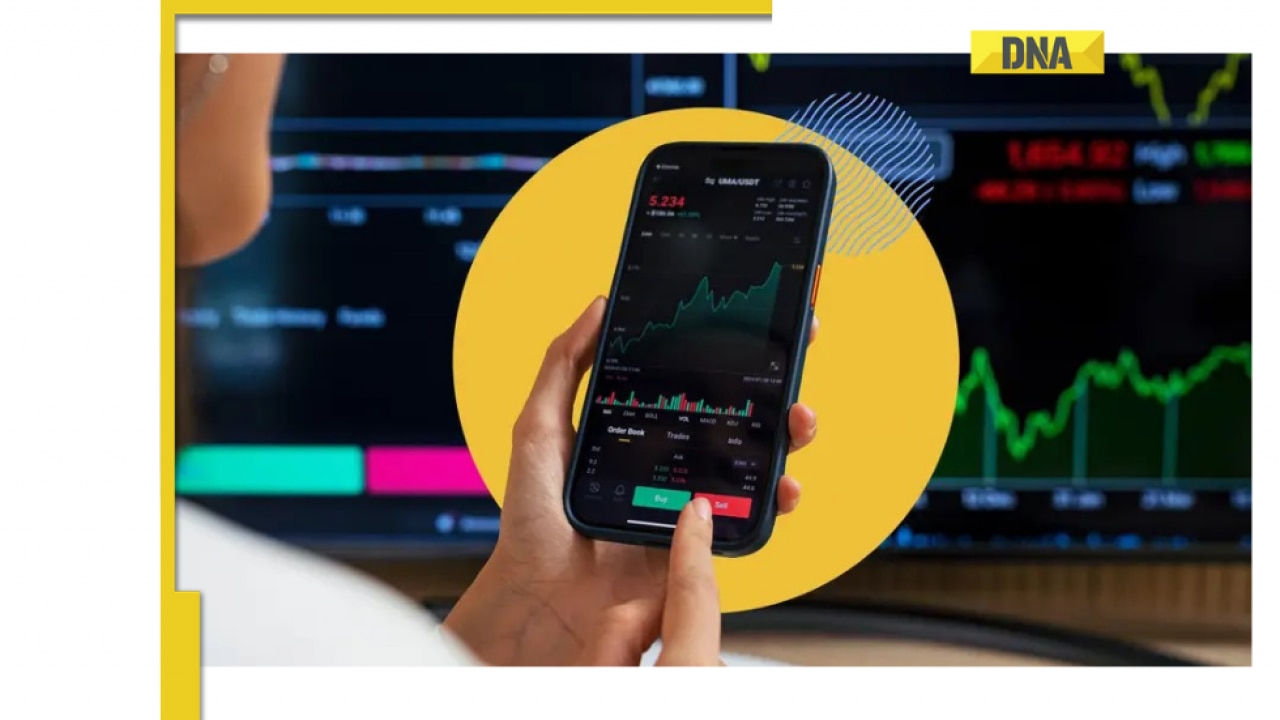


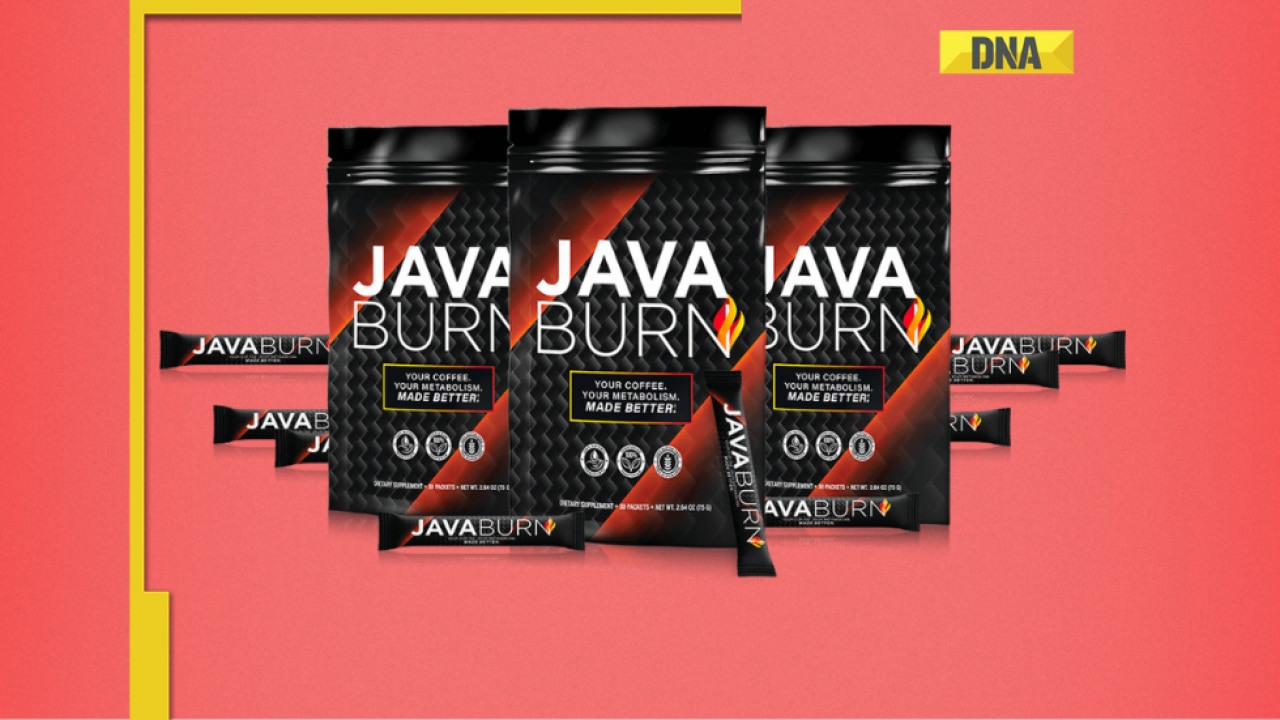
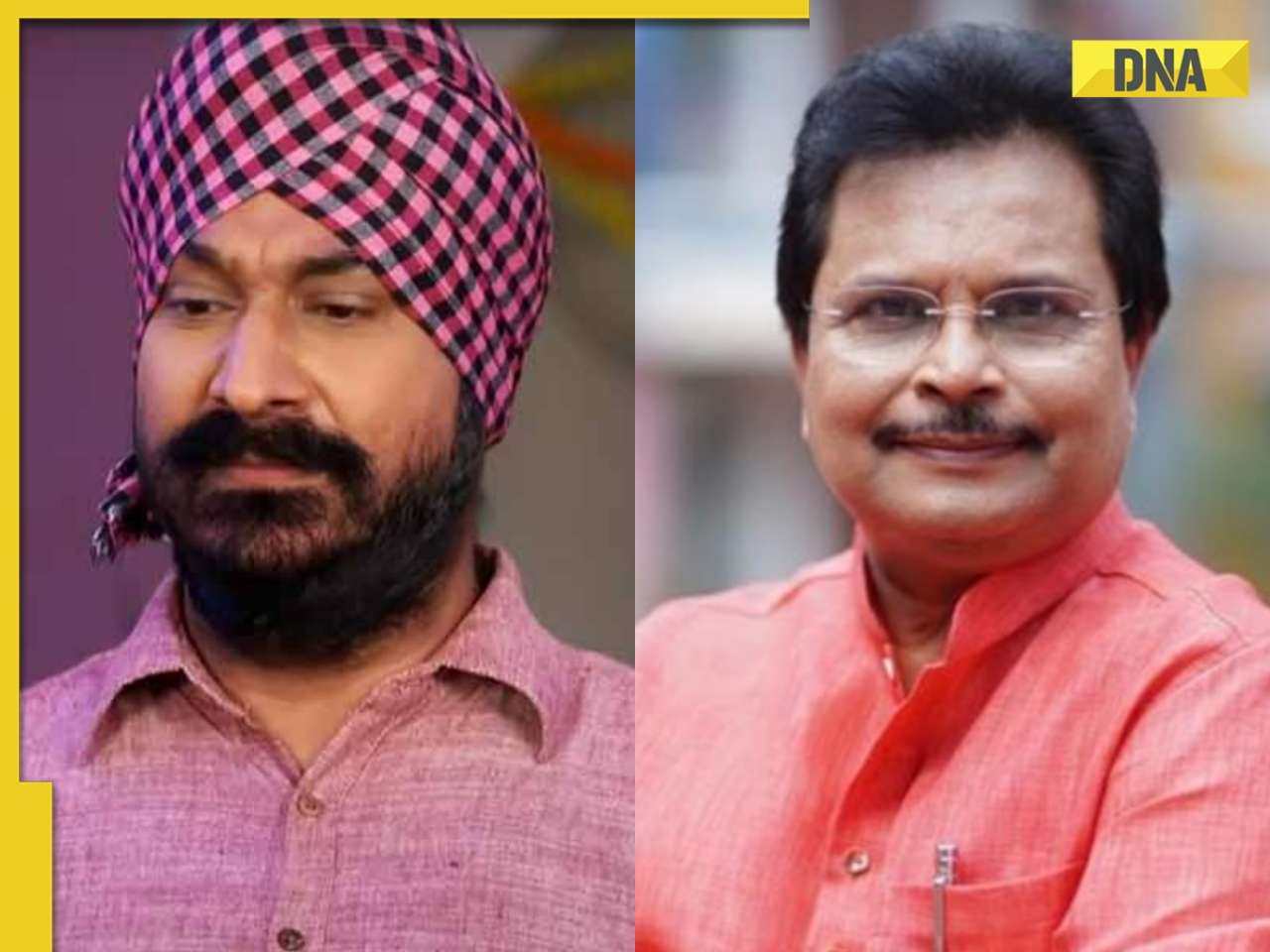





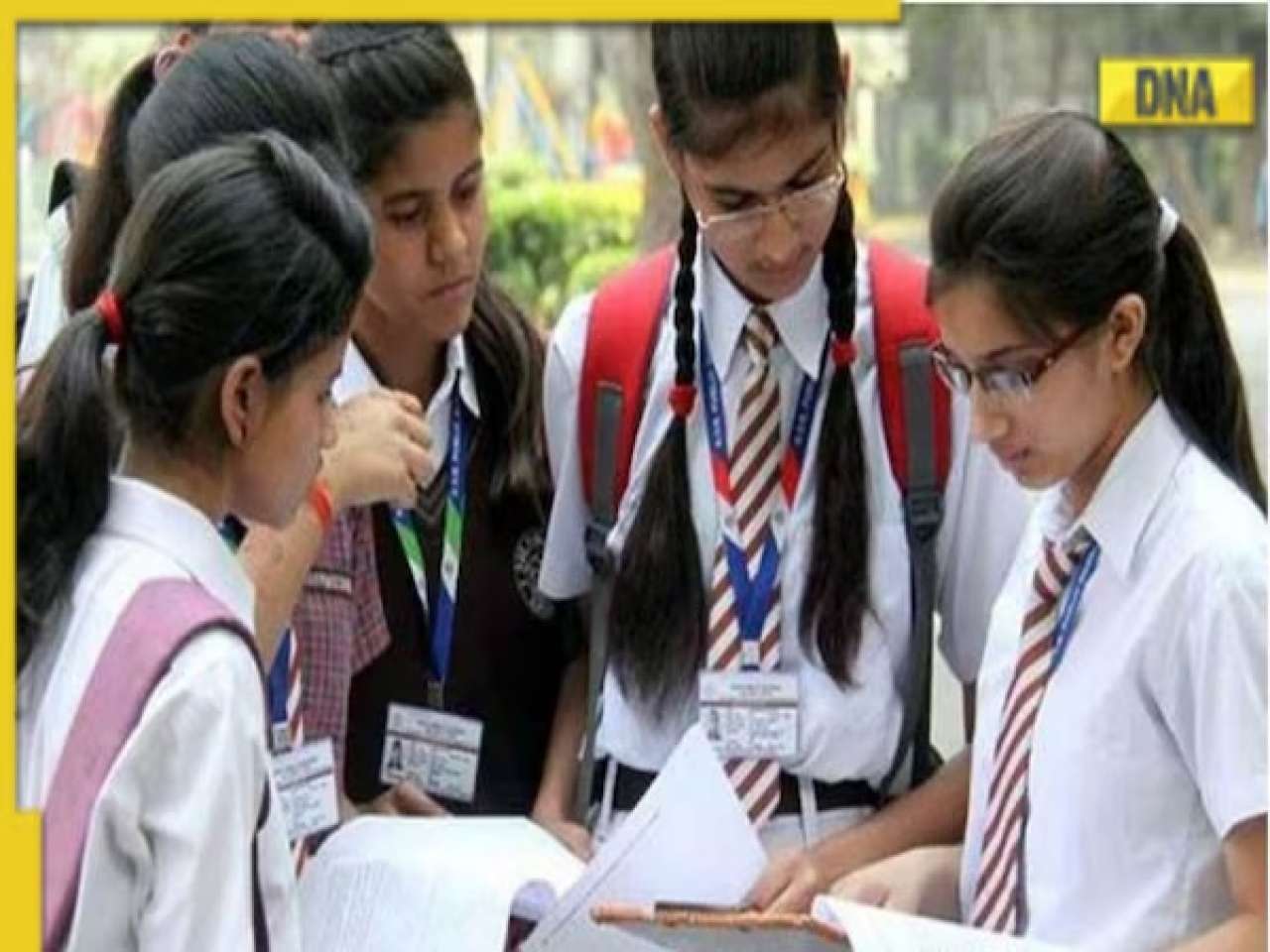

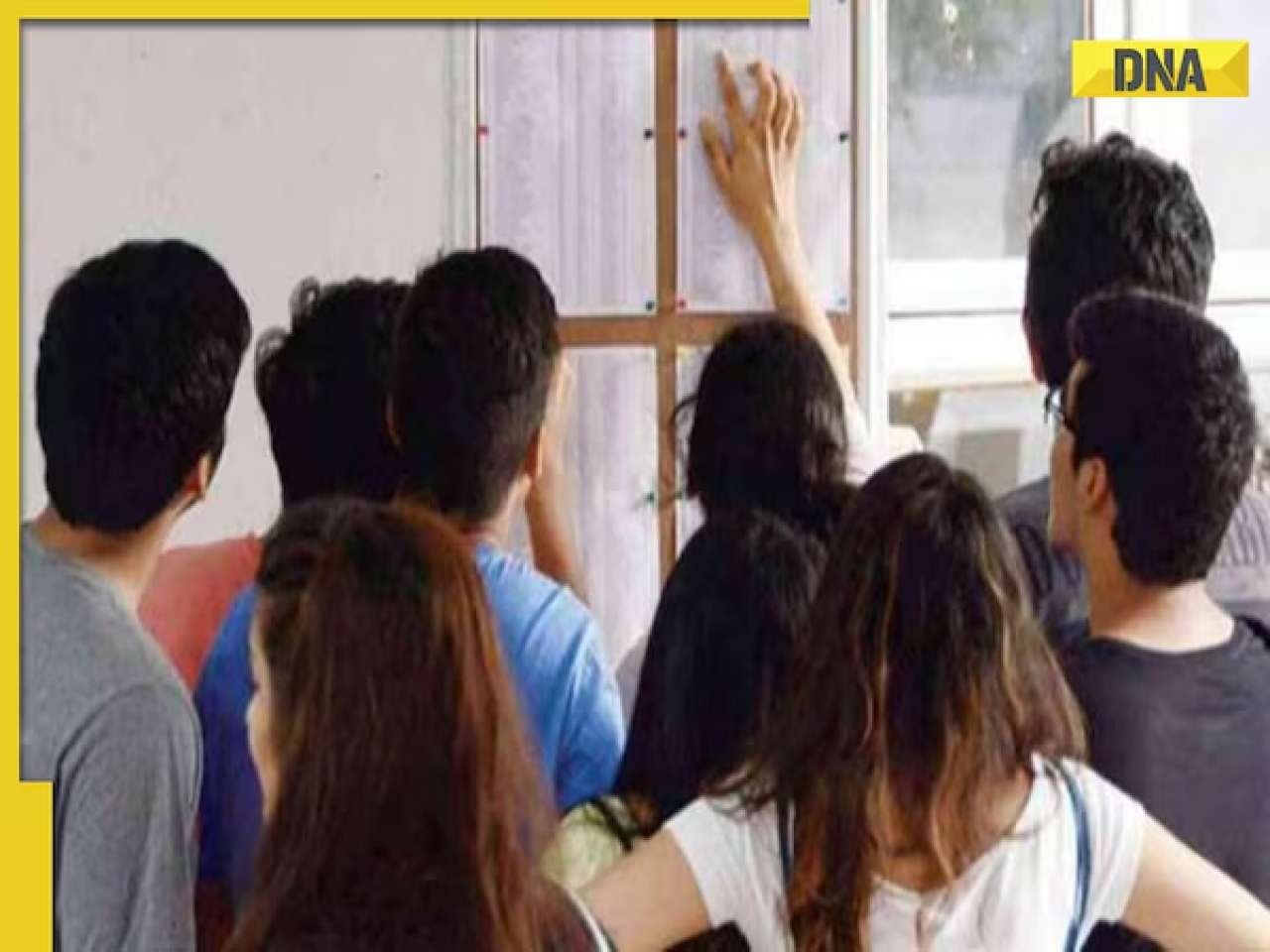
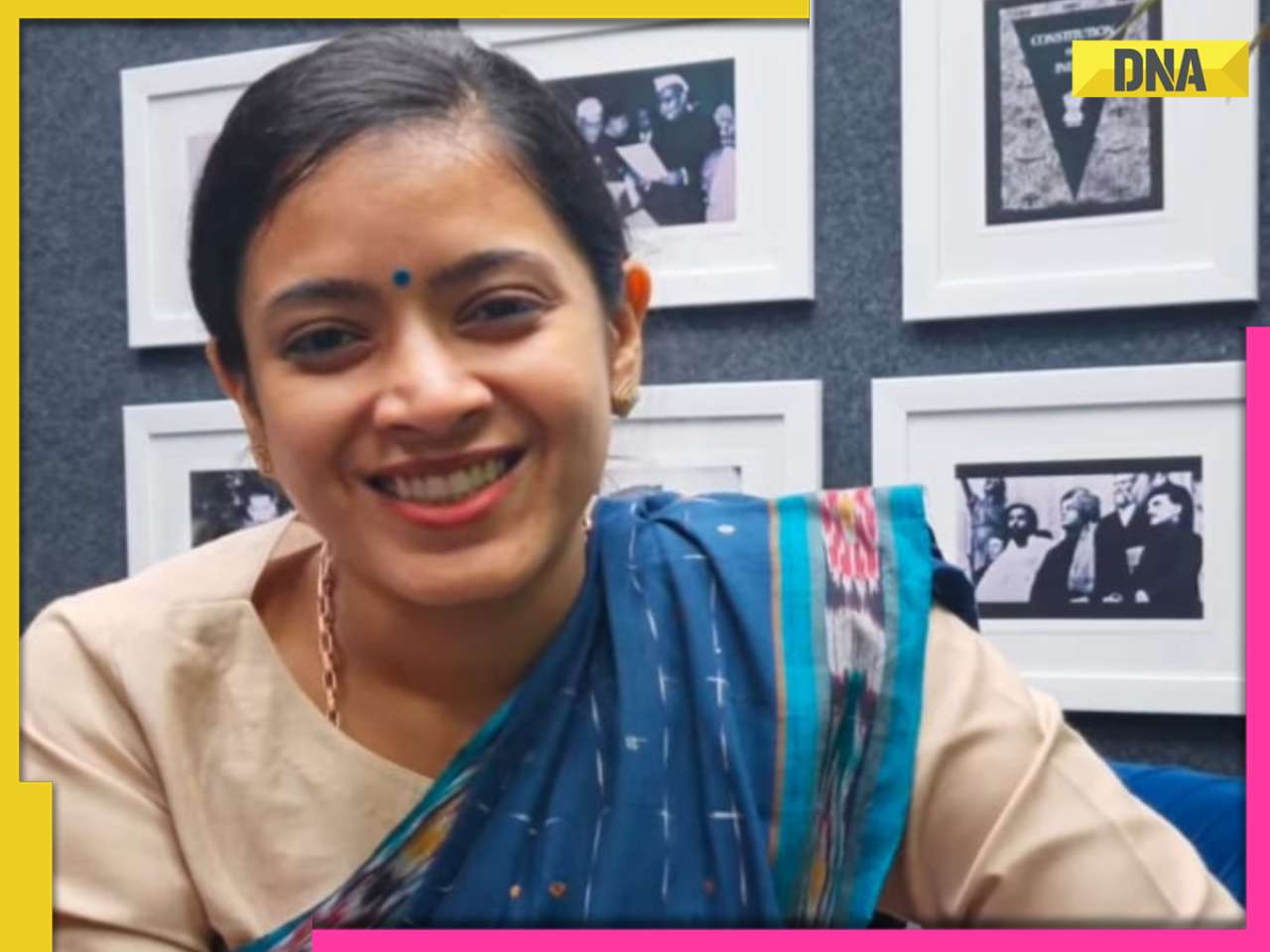
















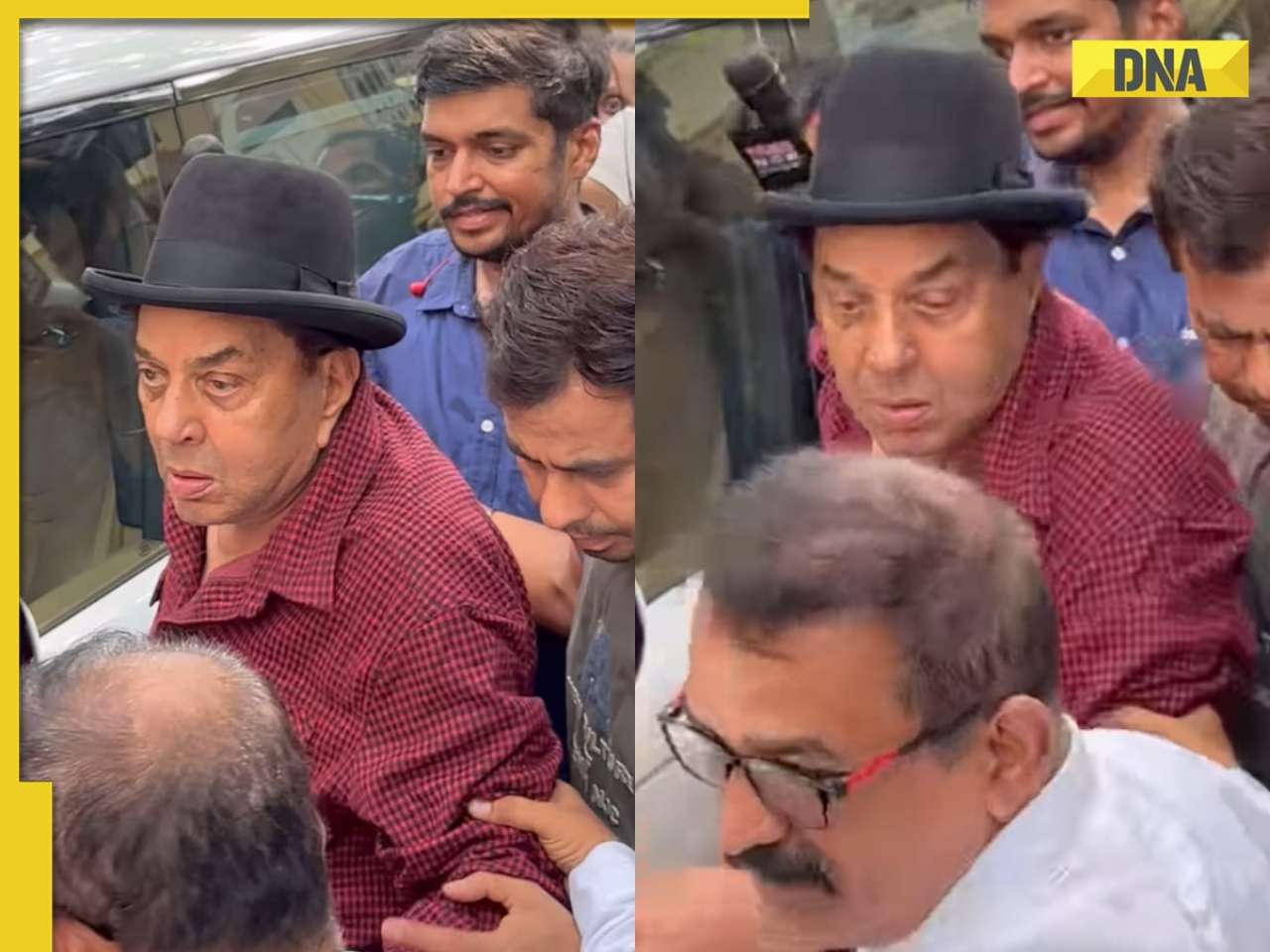


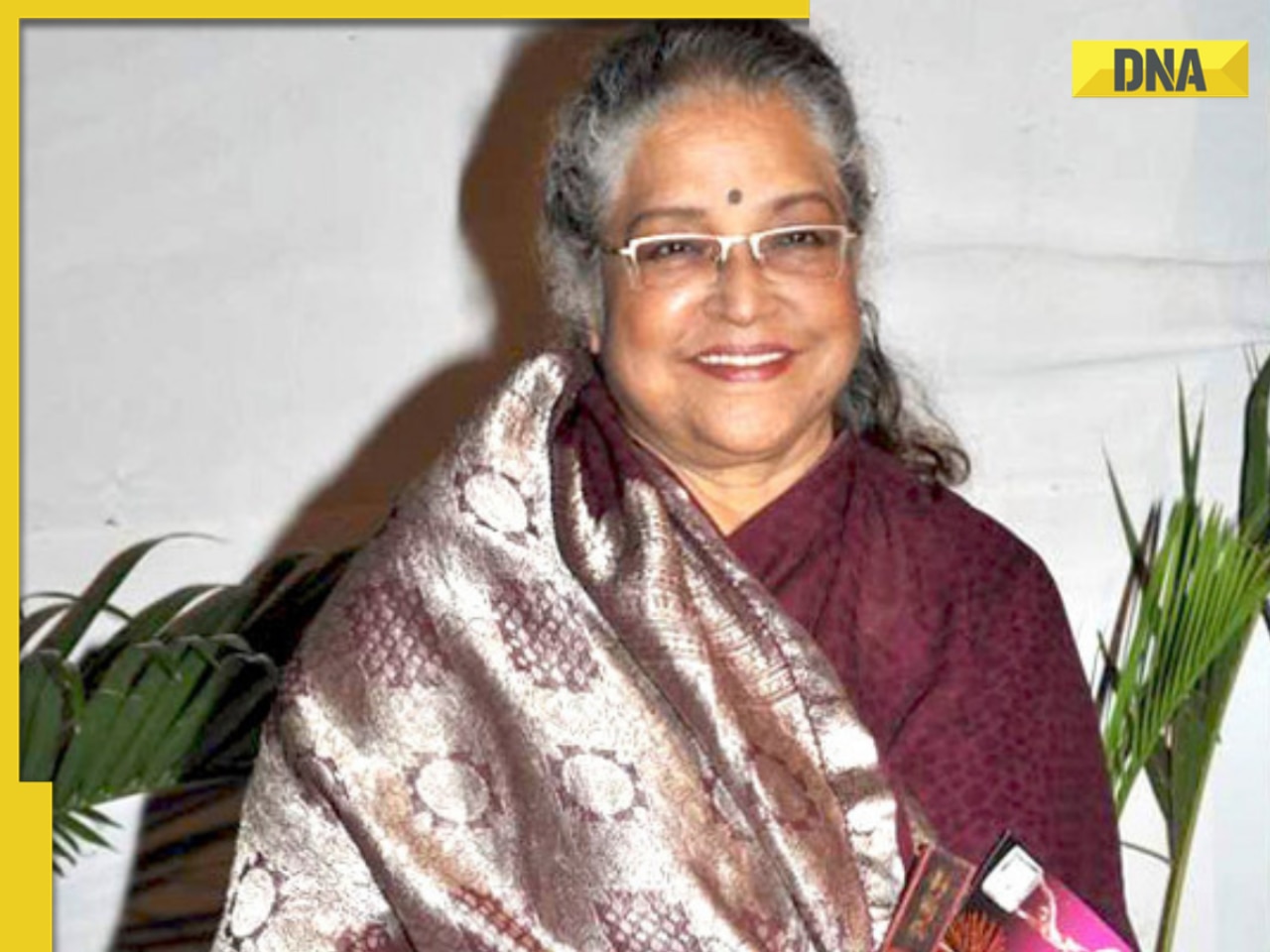

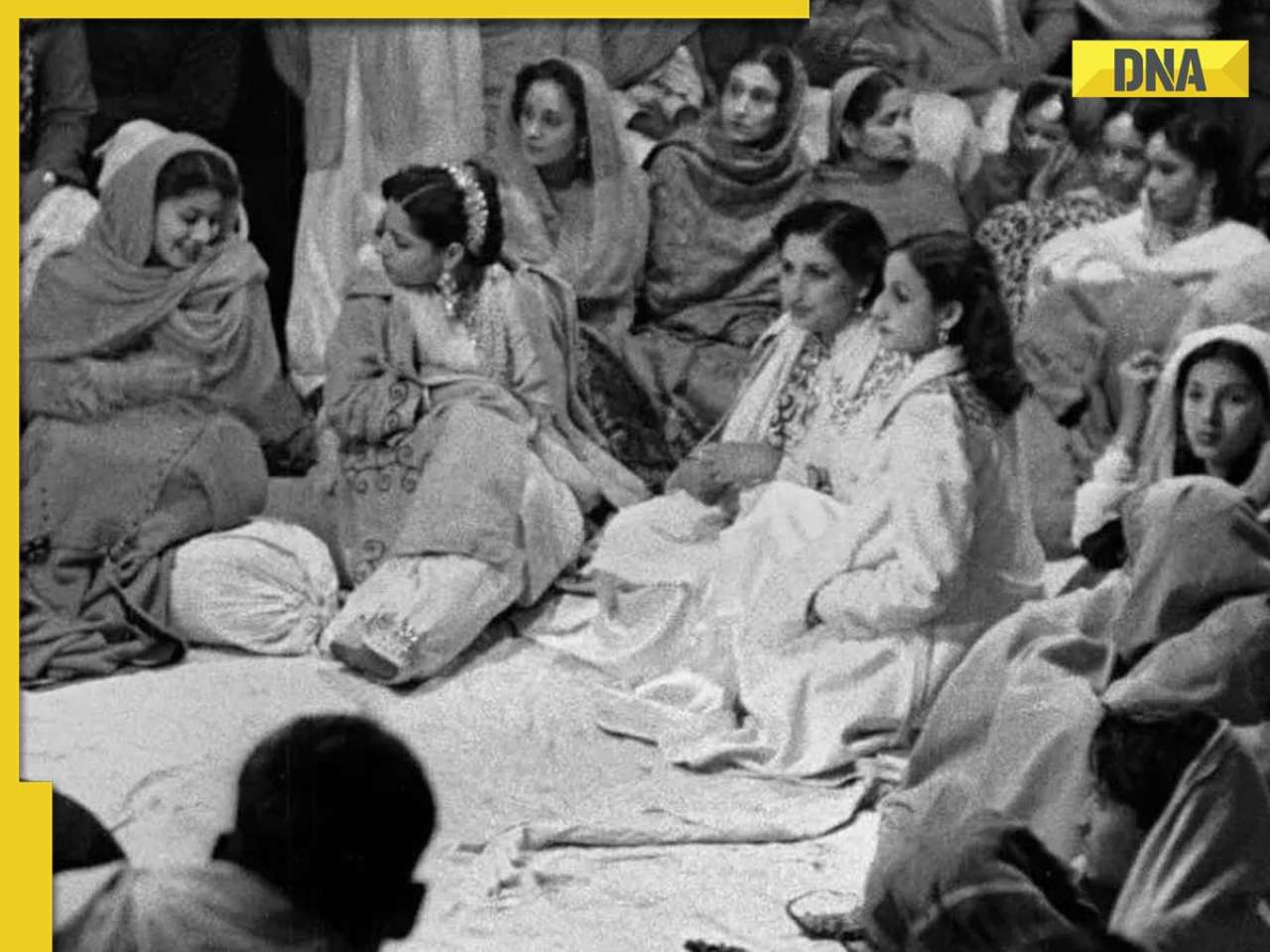






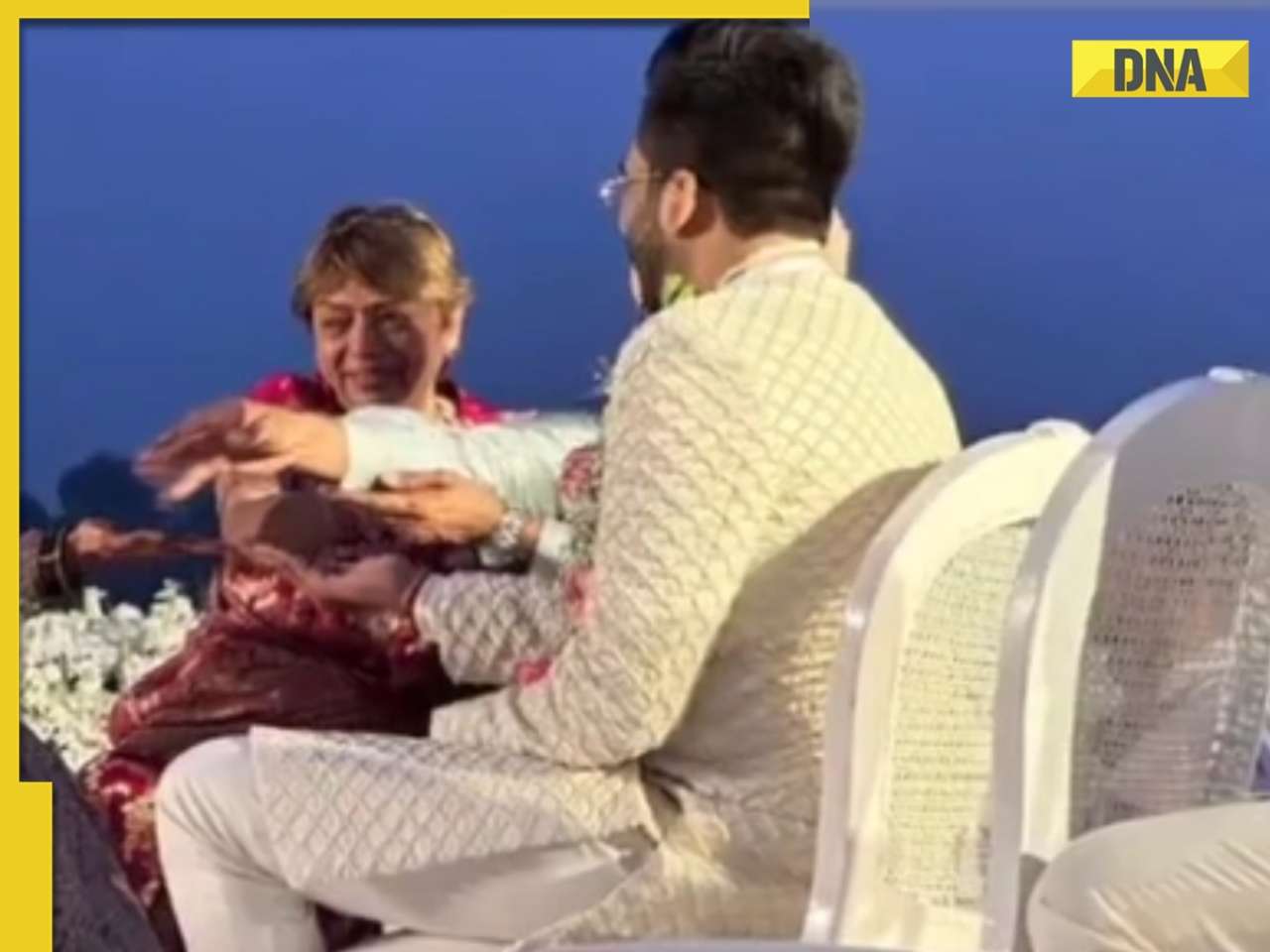















)
)
)
)
)
)